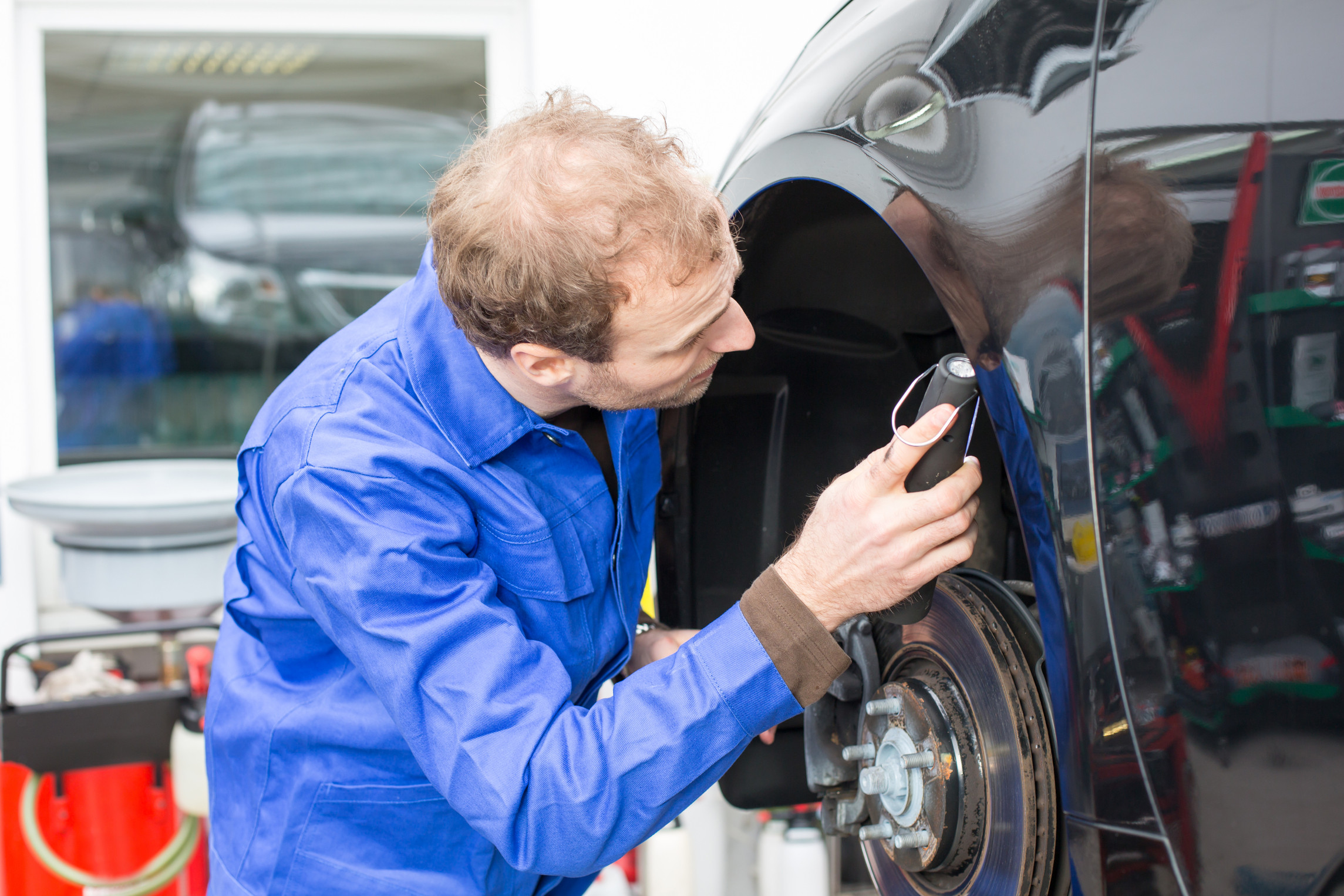
Since the braking system is so essential to the safety of your car, having any sort of problem in this area seems like a pretty frightening situation. The good news is that most brake problems can be avoided with regular maintenance, and there are telltale warning signs of an impending problem in almost all cases. Keeping up with the common maintenance and repair needs of your brakes can keep your car running smoothly and safely.
Fluid and Pressure
When you press on the brake pedal in your car, it pressurizes lines of fluid, which push your brake pads against the rotors on your wheel. This is what causes your car to stop. If there is a problem with the brake fluid in your car, it could cause a loss of pressure to the pads and rotors, which could cause your car to not stop as quickly, or not at all. A tear in the brake lines could cause a loss of fluid, and air in the lines could reduce the pressure as well. The brake fluid level and lines should be checked each time your brakes are serviced, and proper care should be taken to keep air out of the lines too.
Pads and Rotors
The brake pads and rotors are the parts of your braking system that will need to be replaced periodically. The more city driving you do, the more often they’ll need to be replaced. Brake pads will make a whistling sound when they’ve worn down, which lets you know that they need to be replaced. If you fail to replace them at this time, they could start to damage the rotors, and eventually stop working altogether. Other signs that your brakes need to be replaced include a grinding sound, screeching, or shaking when you brake. The sooner you have your brakes replaced once they begin showing any of these signs, the more money you’ll save in repairs, and the less risk you’ll be taking out on the road.
ABS and Other
ABS braking systems allow for more efficient braking, but they are controlled by an electronic sensor. If this sensor goes out, your brakes will still work, but not with the anti-lock function. This can slow breaking. There’s usually an indicator light on your dash when your ABS sensor needs servicing. Other problems to look out for include oil or other impurities on the brake pads that could render the brakes ineffective, or overheating of the brakes on steep hills. You can tell when brakes are overheating because there is a strong burning smell from it. When the brakes overheat, pull over and let them cool down for a while before continuing on.
Related Posts
Key Takeaways On average, passenger vehicle tires last 40,000 to 60,000 miles, depending on type, driving habits, and maintenance. Replace tires when tread depth reaches 2/32”, if damaged, or older than 10 years. Regular rotation, alignment, and proper inflation extend tire life. Aggressive driving, poor roads, and harsh weather shorten tire lifespan. Take advantage [...]
When you think about car maintenance, you probably focus on oil changes, tire rotations, and maybe even brake pad replacement. But what about your brake fluid? If you’ve ever wondered, “What does brake fluid do?” or “Why is brake fluid important?”, you’re not alone. Brake fluid might not be the most talked-about part of [...]
Is that high-pitched squeal from your brakes driving you—and everyone else—crazy? Don’t ignore it. Squeaky brakes aren’t just annoying, they’re your car’s way of saying something needs attention. Whether you're cruising through Salt Lake City or winding up Idaho’s mountain passes, here’s what’s likely going on, how you can fix it, and when it [...]





